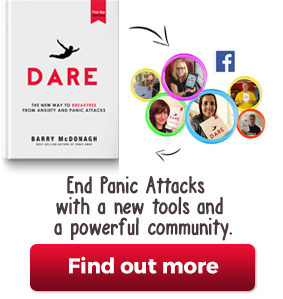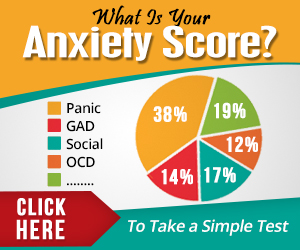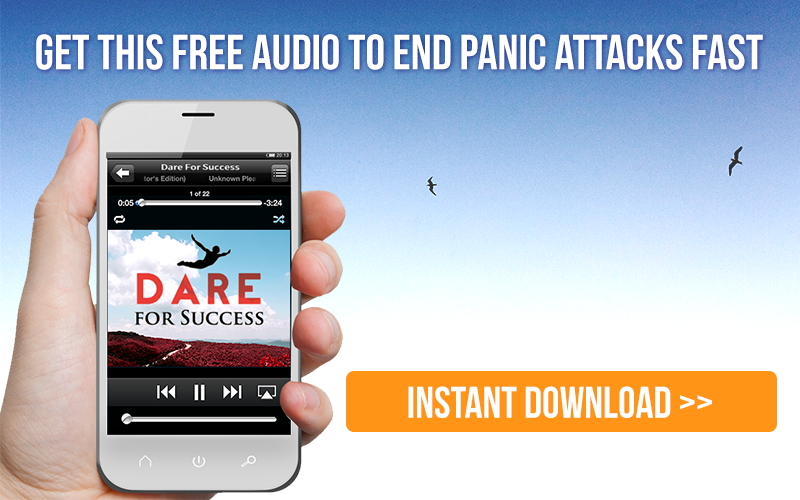When it comes to herbs to help stop panic attacks, there are several options available and it can often be quite confusing when trying to decide which ones to try. To add to the confusion, several herbal supplements come combined in one remedy and are sold as all-in-one ‘cures for anxiety’. After several years of communicating with people who have used various different herbs for panic attacks, I can recommend two herbal supplements that appear to be effective for reducing panic attacks: Passiflora and Valerian. Passiflora (Passiflora incarnata) has traditionally been used as a folk remedy for anxiety and insomnia.
Read more
Agoraphobia is linked to the experience of panic attacks. This is the fear of open spaces or of being in crowded, public places like shopping markets. It’s associated with leaving a safe zone, such as the home. Because of feeling vulnerable, people who experience this fear often suffer from panic attacks in these “open” situations. It’s true to say that many people who have regular panic attacks experience different degrees of agoraphobia. Some have a lingering background anxiety about being away from home should they experience a panic attack. Others are so immobilized by this fear that they find it
Read more
Do you wake up in a highly anxious state? Is it hard for you to focus and get control over your thoughts after a meal? If the answer is yes, one of the critical links related to your anxiety could be traced to your diet and your blood sugar levels throughout the day. If you have a history of diabetes or other health conditions that cause low blood sugar, you may be more vulnerable to high anxiety, stress and even a panic attack at certain times of the day. Many people who are suffering from hypoglycemia experience anxiety on a
Read more
Alleviating mental anxiety you experience upon waking isn’t always easy. How often do you get up in an anxious state? Do you feel calm and well-rested when you first wake up, or is your mind just reeling with thoughts and ideas? If you suffer from frequent anxiety attacks and panic attacks, it’s likely that you experience a high level of stress and anxiety shortly after waking. The good news is, you can use this energy in a positive way and clear out those mental blocks before you tackle the day ahead. Julie Cameron talks about writing “Morning Pages” in her
Read more
Click play to hear Barry explain this anxiety sensation. Sometimes people who are making good progress with their anxieties experience a setback when they come down with either a head cold or the flu. The reason for this is because, as the body wards off the cold or flu, it makes the people feel drained and vulnerable. To people with anxiety, this can feel unnerving because it may remind them of how they felt during an intense spell of anxiety. Colds and flu also come with an almost claustrophobia-like sensation of being congested up in your head. Try to remember
Read more
Click play to hear Barry explain this anxiety sensation. Anxiety creates the sensation of weak or “jelly” legs. When anxious, adrenaline is released into your body. The adrenaline can make sensitive people feel very weak in their muscles—especially the leg muscles, because they’re supporting the body. You often hear people say that when they have to stand up and speak, they go weak at the knees and fear they might topple over. It’s important to note, however, that the jittery sensation you may feel in your legs is not a signal that your legs are any weaker—they’re not. In fact,
Read more
Click play to hear Barry explain this anxiety sensation. When frightened or anxious, the pupils in the eye dilate quickly, and this can sometimes cause blurred vision. Blurred vision can also occur when looking quickly between near and far objects, because the pupils change dimension. Blurred vision is also often caused by fatigue or when the eye muscles start to lose elasticity with age. Even though anxiety can frequently cause instances of blurred vision, it’s important to visit your doctor for an eye checkup. For example, if the blurred vision occurs with a discharge, it may be conjunctivitis and need
Read more
Click play to hear Barry explain this anxiety sensation. If you experience high anxiety or stress, it’s very likely that you also experience headaches, or even migraines. Some describe their headaches as dull pain or a tight band around their heads. A migraine is usually experienced in more severity, sometimes associated with sensitivity to light, sound, and movement. The most common of all the various headache types is a tension headache. This is caused by a tightening of the muscles in the upper back, neck, and head. Many cite anxiety as a major trigger for this type of headache. Researchers
Read more
Click play to hear Barry explain this anxiety sensation. Depression is a very large subject. I will mention only how it ties in with anxiety. When someone has been feeling anxious for quite some time, the experience can become very frustrating and lead to feeling depressed. If you never suffered from depression before, but did so after your anxiety disorder began, then it’s most likely the anxiety that’s causing you to feel so down. Depression, in this context, is driven by thoughts of a future full of anxiety and restriction. A once carefree person feels bound. In addition to having
Read more
Panic and anxiety tends to immobilize people, so much so, that some people have a fear of even leaving their home. Agoraphobia is the technical term used to describe people who are afraid of open spaces or being in crowded places like malls, outdoor markets and theme parks. If you’ve ever felt anxious about leaving home, or your “safe zone”, you’re experiencing some of the effects of agoraphobia. The truth is, those feelings are really just feelings of vulnerability. People who suffer from panic attacks feel like they are more vulnerable in certain situations, and so they have difficulty feeling
Read more
The things that challenge us deeply, also offer us great opportunity. When it comes to anxiety, ask yourself what gift this experience brings to you. There is a hidden gift there and here is how you might discover it… Anxiety is a crash course in self development. You might not remember volunteering for it but nevertheless you are here. This is intense learning for the brave. You may not think of it as learning but you are already developing by the very fact that you are seeking answers. Everyday anxiety is teaching you how to be a bigger person. Anxiety
Read more
One of the most common times people feel anxious at work (after getting called in to see the boss) is at meetings where you are expected to speak up in front of many others. Let me give you a few quick tips on how best to approach those meetings: Generally these type of work meetings involve a group of people sitting around taking it in turns to speak. Most people anxious about speaking in public dread their turn and hope some divine intervention will save them from having to speak at all. To get around this try the opposite approach.
Read more




